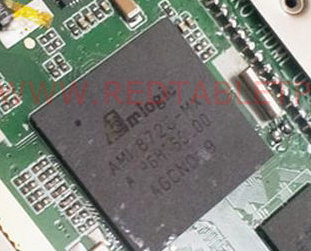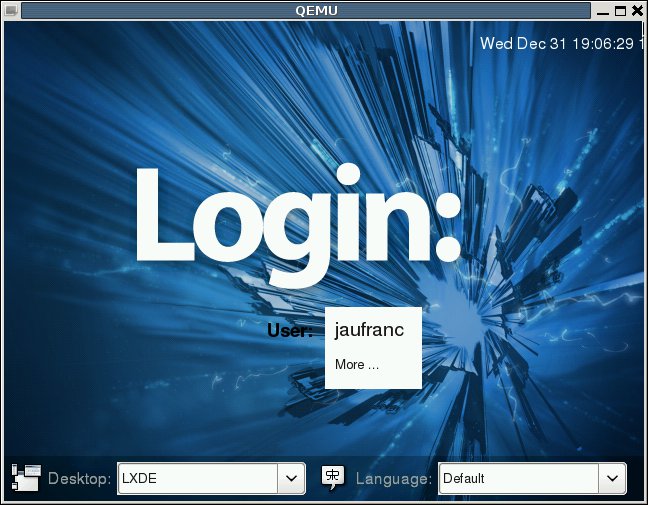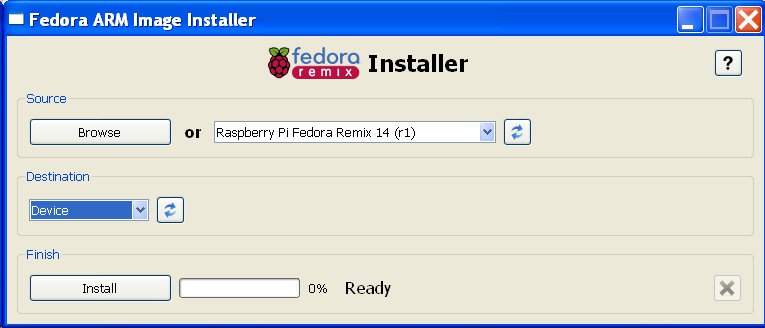Linaro has just released version 12.04 based on Linux Kernel 3.4-rc3 and Android 4.0.4_r1.1. This release already provides Ubuntu 12.04 LTS images for Pandaboard, Snowball, Origen and Versatile Express, and all community builds (nano, ALIP…) are based on Ubuntu Precise Pangolin as well. This should provide significant performance boosted compared to Ubuntu 11.10 thanks to hard-float support and other optimization (See Phoronix Benchmarks). A lot of work since to have gone into big.LITTLE implementation, HTML5 is now supported in Firefox, and it seems Linaro is still working on ARMv6 as they provided VP8 optimizations and improved the toolchain for this architecture. Here are the highlights of the release: Android Finished Snowball Multimedia enablement. Updated all builds to AOSP ICS 4.0.4_r1.1. Switched all builds to 4.7. Updated base toolchain components MPFR and GMP. Ported htop to Android. Ported stressapptest to Android for big.LITTLE Testing. Implemented and ran weekly big.LITTLE tests. Integrated […]
AMLogic Announces AML8726-MX Dual Core Cortex A9 Processor
Amlogic announced the availability of the AML8726-MX, a SoC based on a dual-core ARM Cortex-A9 MPCore processor clocked at 1.5 GHz with a Mali-400 MP GPU. It is the successor of the similarly named AML8726-M with a single core Cortex A9 @ 1 GHz. The company explains this SoC is particularly suitable for Over The Top (OTT) delivery, 3D Gaming and other Internet applications and targets the tablet, set-top-box and smart-TV markets. AMLogic AML8726-MX include 10/100/1000 Ethernet, 2x USB interfaces, 3-in-1 Card Reader support, Analog and digital video outputs, LVDS and T-CON (Timing Controller) with backlight control, digital video and camera interfaces. Wi-Fi is supported via external chipsets. Here are the highlights of the AML8726-MX family provided by AMLogic: A dual-core Cortex-A9 processor achieving over 7500 DMIPS of performance Direct to panel connection with advanced scaling, de-interlacing and picture quality enhancement Industry leading power management technology to extend battery life […]
Linaro 12.03 Release with Kernel 3.3-rc3
Linaro has just released version 12.03 based on Linux Kernel 3.3-rc3 and Android 4.0.3. Among the key points, hardware video decode in now supported in Origen (Android), Android runs in A15/A7 platforms, libav AAC optimization provides about 2x performance improvement and QEMU supports Samsung Exynos 4240 and Calxeda Highbank (work done upstream). Here are the highlights of the release: Android Linaro Android has support for DS-5 version 5.9. Hardware accelerated Multimedia is now integrated on Origen. EEMBC, denbench and coremark have been ported to Android and are running in LAVA. android.net ConnectivityManager unit tests have been built and integrated in all builds. Hardware decode of H264 and MPEG4, 1080P and 30 FPS is enabled on Origen. Origen now has 1080p HDMI Graphics and Video Support. Android runs on A15, A7 and A15/A7 fast models. ARM’s big.LITTLE has been tested running Android using a set of unit tests. Kernels of prebuilt […]
Cross-compiling the ARM Linux Kernel in Ubuntu 12.04 LTS
Yesterday I installed Ubuntu 12.04 ‘Precise’ Beta 1 in Virtual Box to give it a try (I could not manage to have HUD working btw), and today, I’ve noticed an article entitled “Ubuntu 12.04 ‘precise’ and cross compilation of ARM kernels” explaining how to build Linaro ARM kernel in Ubuntu 12.04. So I’ve decided to give it a try, especially it seems straightforward. I followed the instructions in the aforementioned link, it basically worked except I had to install dpkg-dev package that also installed the build essentials (gcc, g++, etc…) and use sudo for some commands. You’ll notice the name change for the ARM gcc toolchain as it now uses hard-float by default which seems to provide quite a boost in performance for the Pandaboard. Here are the steps I followed: Install the ARM GCC cross compiler and the development package of dpkg:
|
1 |
sudo apt-get install gcc-arm-linux-gnueabihf dpkg-dev |
Retrieve the kernel source:
|
1 |
apt-get source linux-source-3.2.0 |
Install […]
Linux 3.3 Release
Linux Torvalds announced the release of Linux Kernel 3.3 on the 18th of March: So after the extra -rc release last weekend, now the final 3.3 is out there in the usual locations. Things did indeed calm down during the last week, and the shortlog looks pretty boring. The diffstat from -rc7 is dominated by the arch/tile defconfig changes, the rest is pretty small, although there are changes spread out in various subsystems (drivers, filesystem, networking, perf tools). … And obviously, the 3.3 release means that the merge window for 3.4 is now open, although I may keep of pulling stuff for a day or so to encourage people to test the actual release. Linux 3.2 brought ext-4 and btrfs file system improvements, support for Qualcomm Hexagon processor, an improved profiling tool (perf top), and better CPU and network bandwidth management. Linux 3.3 brings the following key changes: Android merge: […]
Instructions to Run Raspberry Pi Fedora 14 Remix in QEMU
As mentioned in my previous post, the Raspberry Pi Foundation has just released the Fedora 14 Remix SD card image that can be installed either via installer (easiest method) or using dd / windd as with the previous image. In this blog post, I’ll give the instructions how to run Raspberry Pi Fedora 14 Remix in QEMU using a similar method than the one I used for Debian Squeeze. I tested since in machines with Ubuntu 10.04 LTS and Debian 6.0.4. Download the image using BitTorrent raspberrypi-fedora-remix-14-r1.img.gz.torrent or via the HTTP link available on Raspberry Pi Download page. Decompress the image:
|
1 |
gzip -d raspberrypi-fedora-remix-14-r1.img.gz |
Download kernel 3.0.4 image for qemu, if you don’t have it yet.
|
1 |
wget http://dl.dropbox.com/u/45842273/zImage |
Since the rootfs is full (in the real board it will be resized to the size of the SD Card), we need to increase the size of the rootfs partition. First create and empty 3G […]
Raspberry Pi Fedora 14 Remix Available for Download
Seneca has officially released Raspberry Pi Fedora 14 Remix, the main distributions for the Raspberry Pi low cost ARM11 board based on Broadcom BCM2835. There are two methods to install Fedora 14 for the Raspberry Pi on the SD Card: Using the Installer This method is available for: Fedora 16 – http://files.velocix.com/c1410/fedora/installer/fedora/fedora-arm-installer-1.0.0-1.fc16.noarch.rpm Windows Vista or Windows 7 – http://files.velocix.com/c1410/fedora/installer/windows/fedora-arm-installer-1.0.0.zip Other Linux (Python) – http://files.velocix.com/c1410/fedora/installer/source/faii-1.0.0.tar.gz For details on the installation procedure, go to http://zenit.senecac.on.ca/wiki/index.php/Raspberry_Pi_Fedora_Remix_Installation Using dd This is the method used for the previous Linux images released for the Raspberry Pi. You can download it via Bittorrent. The HTTP download links are not yet available but will be soon on Raspberry Pi Download page. The Raspberry Pi Fedora Remix 14 is based on the following: Fedora package collection version: 14 Kernel version: 3.1.9 Architecture: armv5tel The Raspberry Pi Fedora Remix 17 will be the second version of the Remix released: Release […]
Raspberry Pi Releases Arch Linux SD Card Image
The Raspberry Pi Foundation has just announced the release of Arch Linux for the Raspberry Pi. This image is based on a minimal image of Arch Linux and does not come with a graphical interface. This distribution may not be suitable for beginners and you may be better off using the Debian SD Card image or even the upcoming Fedora 14 Raspberry Pi Remix image. You can always install extra packages with Pacman, the Arch Linux package manager. To update the package list:
|
1 |
pacman -Syu |
To Install LXDE Graphical Interface:
|
1 |
pacman -S lxde xorg-xinit xf86-video-fbdev |
To run LXDE:
|
1 |
xinit /usr/bin/lxsession |
You can download it using BitTorrent: archlinuxarm-01-03-2012.zip.torrent (preferred method) or via one of the HTTP mirrors: archlinuxarm-01-03-2012.zip. (This link will redirect your download to the closest available HTTP server). The default login credentials are: root/root I haven’t tried it, but you should be able to use this release in qemu, by following instructions similar to the one […]







